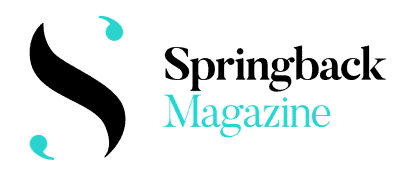Springback Academy 2023
Review

Atlas da boca
Gaya de Medeiros
There’s a moment at the top of Gaya de Medeiros’s Atlas da boca when, after de Medeiros and fellow performer Ary Zara share some banter with the audience, a bewildered usher steps onto the stage to give the no-photography spiel. He is greeted by laughs from the audience, who think he is part of the show.
It’s testament to the complete absence of affectation in this work that we can’t tell life from performance. With jagged, martial choreography, vivid spoken-word imagery and imaginative staging, de Medeiros has created a poem in motion, where connections are rarely made explicit yet create profound meaning on a subconscious level.
Atlas da Boca is a refreshing take on gender identity, which doesn’t resort to the usual autobiographical tropes. The poetry of de Medeiros’s writing appeals to the imagination, while the humanity of the performances gives us space to feel for them both.
Atlas de Boca, a show that explores trans bodies, begins with a false start. Of what would have happened if it hadn’t been, for the festival’s 40-minute quota, cut short. ‘He did this, I did that. And then we did this move we found on YouTube,’ demonstrate choreographer and performer Gaya de Medeiros and dancer Ary Zara. Exposition over and just when they signal OK, I think we can go, the beginning is postponed yet again, with a spontaneous housekeeping announcement by one of the ushers that is nothing short of comical. De Medeiros and Zara have us lapping up their every word before the show has even ‘started’.
Which makes what then follows somehow digestible: a spoken-word piece as much as a dance that, in winding soliloquies and tangled-up solos, is caught up in the politics of the mouth. Indeed, while we may not understand everything, and perhaps on a deeper level never will, there is something inherent in Atlas de Boca that, as the name implies, is universal. That ‘something’ is being human.
In the final scene — though it could well be, symbolically, the ‘beginning’ — de Medeiros and Zara cradle one another like embryos in the womb. Naked and vulnerable, and utterly beautiful, they give themselves whole-heartedly to the audience. The gift is received. And it is a gift for which I would personally like to thank them.
Atlas da Boca is a raw gem that gradually reveals itself. At first, performers Gaya de Medeiros (also director) and Ary Zara are like two playmates sharing enigmatic and witty stories through a microphone hanging from the ceiling. It’s enjoyable, even if it’s hard to make sense of it all.
Until, that is, they engage in a mischievous struggle that soon evolves into a tender, almost erotic embrace. Clothes disappear in the fight, revealing two transgender bodies, wrapped in a warm subdued light. Not a single sound is heard in the audience, as if everybody’s breath has been suspended by this delicate yet audacious statement: this is our body, this is our skin.
While the experience they are sharing with us is utterly personal, we all have a body and skin. The world certainly needs more of such generous, humbling and thought-provoking works.
A good performance should take you on a journey, but scarcely does it traverse as many emotional miles as this one. Despite translating as ‘Atlas of the mouth’, this two-hander from Brazilian and Portuguese transgender artists Gaya de Medeiros and Ary Zara could just as easily be called ‘Atlas of the heart’ – because we take them deep into ours.
The witty and energetic opener gives no indication of the gentle yet devastatingly powerful ending that lies in store. Indeed, the hilarious middle, where de Medeiros informs us that the Portuguese words for ‘tired’ and ‘married’ are almost identical (and then proceeds to discuss a potential union with a man in the audience) takes baby steps compared to the bold strides of the denouement.
In a world where respect and understanding for the transgender community still has a mountain to climb, Atlas da boca is a beautiful celebration of bodies, humanity, difference and love.

